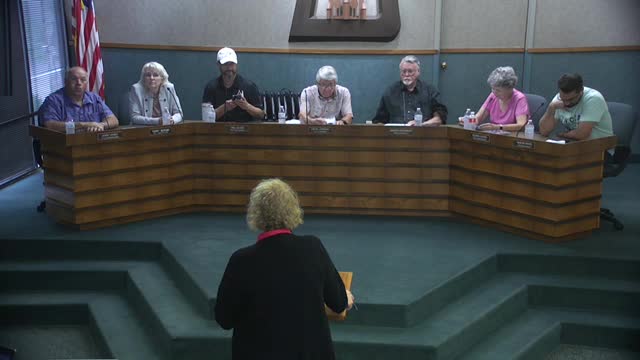Planning commission recommends city council consider xeriscape rules, sets limits and maintenance expectations for artificial turf
Get AI-powered insights, summaries, and transcripts
Subscribe
Summary
Staff proposed amendments to the subdivision code to permit and regulate xeriscaping citywide; the commission recommended approval to city council after discussing minimum "traditional" landscape percentages, artificial turf limits, maintenance, and drainage requirements.
The Decatur Planning and Zoning Commission voted to recommend city council approval of proposed amendments to the subdivision code that would extend xeriscaping standards beyond industrial districts and establish minimum traditional-landscape and artificial-turf limits.
Lisa Hannon, planning director, told the commission she would “enter our staff report into the record by reference in its entirety” and summarized the staff proposal: “So currently, xeriscaping is only permitted in industrial districts.” The draft ordinance adds definitions, irrigation and backflow permit requirements, a table of permitted trees, shrubs and ground covers aligned with state guidance, and numeric standards for required traditional landscaping and limits on artificial turf.
Under staff’s draft, single-family and duplex lots would be required to retain 35% of the total lot area as traditional landscaping; multifamily projects would be required to retain 30%. For residential properties the draft limits artificial turf to 40% of required landscape and setback areas; staff proposed allowing up to 50% artificial turf for nonresidential required landscape area in some categories. The draft also prohibits exposed soil on any site (areas left exposed longer than six months must be covered) and requires ground covers be maintained at 12 inches or lower to align with the city’s tall-grass ordinance.
Commissioners asked about artificial-turf lifespan, breakdown and removal. Hannon said the ordinance would include maintenance requirements and typical warranty expectations; staff cited an 8- to 10-year warranty window as an example and said specifications would prohibit rubber infill and require certain infill materials (staff described “an organic or, bacteria resistant sand” as preferred). The draft also preserves alternative standards for developments approved as planned developments, where project-specific landscape standards may apply.
A commissioner expressed hesitation about extensive use of artificial turf, noting environmental and end-of-life concerns. Other commissioners and staff discussed permeability and drainage, restrictions on materials that could wash into drainage ways, and the possibility of hold-harmless requirements where turf would be placed in rights-of-way. After discussion Commissioner Will Clossey moved to recommend approval of the amendments as presented; Commissioner Mason Woodruff seconded and the motion carried on an aye vote. The commission’s action is a recommendation to city council; the draft ordinance was not adopted by the commission itself.
